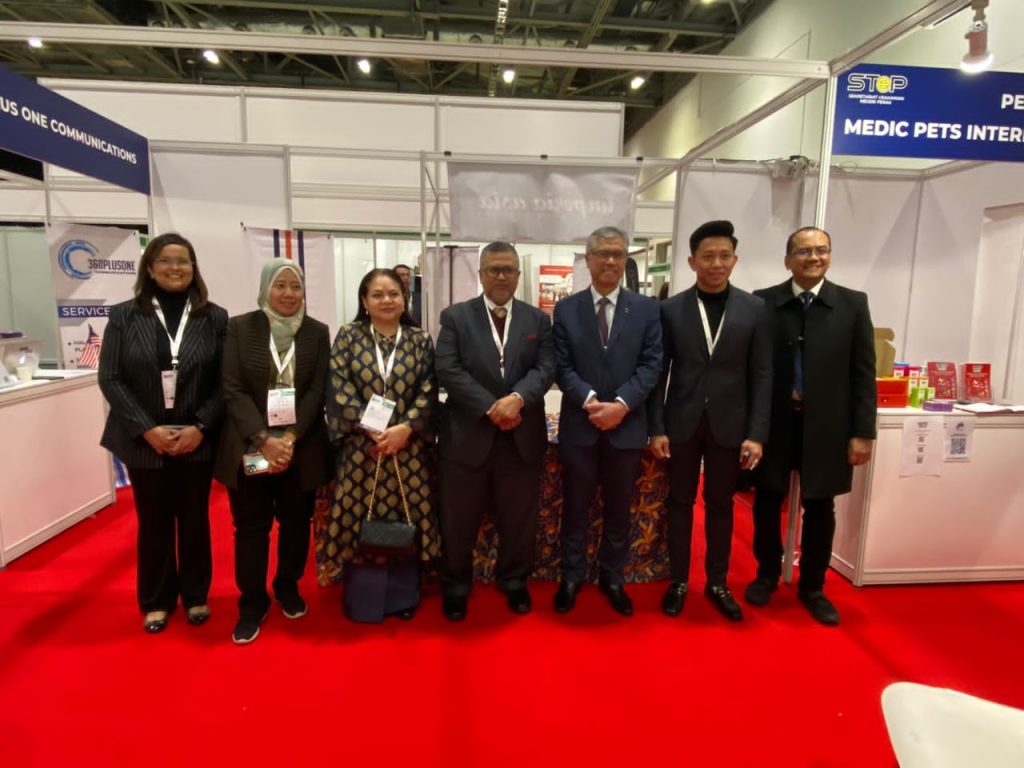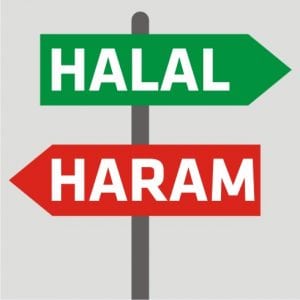The global Muslim expenditure in the halal sector is projected to be worth RM16t
by NURUL SUHAIDI – The Malaysia Reserve
In Malaysia, the prioritisation of halal food is not seen as a burden but a fundamental aspect ingrained in our society as part of our cultural and majority religious practice that reflects a commitment to Islamic principles.
With the halal food lifestyle and demand for diverse and authentic dining experiences continuing to rise, the significance of obtaining a halal certification for restaurants cannot be overstated.
Navigating the halal restaurant market access is not only about meeting religious dietary requirements but also unlocking opportunities for wider market penetration, especially in the lucrative domain of export markets.
 According to Halal Development Bhd (HDC) CEO Hairol Ariffein Sahari, engaging in halal food activities and values are fundamentally religious, they are not merely symbolic.
According to Halal Development Bhd (HDC) CEO Hairol Ariffein Sahari, engaging in halal food activities and values are fundamentally religious, they are not merely symbolic.
“This is because adopting halal values and perspectives is increasingly recognised by governmental organisations around the world, as well as by industry players and consumers.
“The rise in global tourism also has contributed to the demand for halal restaurants. Muslim travellers, in particular, seek dining options that adhere to their dietary requirements, creating opportunities for halal restaurants in popular tourist destinations,” he told The Malaysian Reserve (TMR).
Food businesses that embrace halal certification are winning in the export market as it provides them with global market access catering to the growing number of Muslim consumers worldwide.
The certification also will increase consumer confidence in the quality and authenticity of the food and products.
In addition, the halal certification adds to their competitive advantages as it allows Malaysian businesses to differentiate their products and services from competitors while making it easier for Malaysian food and beverage (F&B) businesses to navigate international trade agreements and regulations.
“Halal certification also enhances the credibility of F&B entrepreneurs and their products. It serves as a third-party verification of compliance with Islamic standards, building trust among consumers, retailers and business partners,” Hairol said in an interview with TMR.
Market Value
It is noted that the global Muslim population is growing, creating a larger consumer base for halal products. Estimates indicate that in 2030, global Muslim expenditure on the halal sector is projected to be worth US$3.5 trillion (RM16.34 trillion).
For the year 2022, Malaysia’s halal export for F&B was RM27.84 billion, an increase of 57.8% from 2021. This increase was due to the economic rebound and the overall trade improvement post-Covid-19.
Additionally, according to HDC, the global halal food market is quite promising as the market is forecasted to reach US$2.17 trillion by 2030.
Malaysia has very well-established halal standards that counter all sectors of food industries and the nation’s halal certification is recognised by the Department of Islamic Development Malaysia (Jakim) which is accepted globally, trusted and reliable.
Malaysia’s halal regulation also cannot be simply regulated by any organisation including the provider of halal training.
SIRIM Bhd is one of the technical committees in developing halal standards such as MS 1500, MS 2400, MS 2934, MS 2424, MS 2610, and MS 1900, and businesses may seek training, halal consultancy and explore deeper understanding and significance of having their business halal certified through those bodies.
In overseeing the halal training and consultancy, SIRIM halal department senior consultant Lizawati Mohamad Darwi said the demand for halal food is currently expanding worldwide, and in Malaysia, this is seen as a prerequisite for developing a business system and a foundation of the other system.
According to her, halal certification can streamline other restaurant business processes as it indirectly complements food safety standards such as Good Manufacturing Practice (GMP), Hazard Analysis and Critical Control Points (HACCP) and ISO which are required for food safety and security.
Not only that, given that the concept of halal emphasises not only halal sources but also in terms of hygiene in food production, most companies choose to integrate halal standards with other food standards that emphasise food safety and hygiene.
“For SIRIM, we can see the demand among food industries is increasing by the demand for training and consultancy service we received,” she said.
The increased demand is also due to the acceptance of Muslims only for halal-certified products to prevent “shubhah” or doubt resulting in them purchasing food with a clear halal logo on the label.
“Not only that, non-Muslims started to accept halal (status) due to the belief that halal also provides health benefits by consumption of good sources of food and well-ethical animal slaughtering or practices,” she said.
Product and Business Expansion Opportunity
Halal certification is important to build trust and confidence among consumers, leading to increased sales and brand loyalty. It is also a prerequisite for accessing Muslim-majority markets, which is impartial for exports.
Muslim-majority markets constitute a substantial portion of the global population and halal certification is a good starting point to enter the market, enabling more opportunity to expand product and business potentials.
The impact of gaining halal market access is also significant on the overall halal supply chain and ecosystem which assures that halal products are preserved from contamination hence influencing various stakeholders.
On top of that, the strategies to streamline the certification process benefit not only individual businesses but contribute to the overall efficiency and growth of the halal industry and are important to maintain the integrity of halal until it reaches consumers.
Global Halal Market Challenges
While halal certification plays a crucial role in expanding international market access, food businesses face challenges to meet the global halal standards especially due to the diverse certification standards across countries.
Different countries and regions may have their halal certification standards, including labelling, alcohol, emulsifiers and other food contents which lead to a lack of uniformity and difficulties to enter the export market.
“Businesses face the challenge of navigating and adhering to diverse requirements, making it complex and time-consuming to obtain certifications for multiple markets,” Hairol said.
Due to this, he added that the Malaysian government is currently promoting the principle of halal diplomacy to promote and ease the integration of international halal certification acceptance.
Additionally, the challenge is also in ensuring the entire supply chain complies with halal standards, especially for businesses operating in multiple regions.
“Maintaining consistency from raw material sourcing to production and distribution is crucial for obtaining and retaining halal certification,” he said.
Meeting halal standards also often requires thorough documentation and traceability throughout the production process. Maintaining accurate records can be a challenge and businesses must implement robust systems to track the source and handling of ingredients.
Apart from that, obtaining and maintaining halal certification can involve significant costs, including fees for inspections, audits and ongoing compliance. Whereas for small and medium enterprises (SMEs), the financial burden may be a barrier to entry into certain markets.
“To declare the product is halal, raw materials need to come from halal sources. Certain materials especially imported materials are more difficult to get the halal assurance,” Lizawati added.
Apart from raw materials, manpower issues and resources as well as the business process also pose challenges in maintaining the halal status for those who have obtained it, especially for the smaller food businesses.
Based on the regulations, the company is required to have at least two local Muslim workers in the production and operation. The high turnover among local workers often causes difficulties in complying with the requirements.
“To maintain minimum local workers sometimes is quite difficult, especially for small businesses. They tend to like switching jobs for better options. In that sense, it’s difficult for the company to maintain the local Muslim workers.
“Another challenge will be the auditing by Jakim where the department will conduct spot checks on the business to ensure they can maintain two Muslim workers in the production. Otherwise, it will affect their certifications,” Lizawati added.
Nonetheless, she said businesses need to be aware of the challenges, and requirements, and seek advice from relevant bodies to increase awareness to develop their product to ensure success and eventually contribute to expanding the halal market.
Navigating Halal Principles
GIVEN the growth of the Muslim consumer market, it is of utmost importance for restaurant owners who wish to cater to the Muslim segment to possess a comprehensive understanding.
Here’s how Malaysia’s restaurant and food and beverage (F&B) operators navigate the halal principle in attracting customers.
Mercure Kuala Lumpur Glenmarie GM Fariz Victor said there are no real challenges in coming up with a halal menu as the principle is to have all halal-compliant ingredients and products.
“Our traditional halal cuisine has been elevated by using only all halal-compliant ingredients and products which are then transformed into Western and/or international dishes infused with local and traditional elements.
“As we are not involved in the export market, the challenge in cooking the food for our guests is to ensure the ingredients are from halal sources and cooked in a clean and hygienic area,” he told The Malaysian Reserve (TMR).
The restaurant also builds relationships with halal suppliers and undergoes a stringent process where its halal and hygiene executive will check and verify that all ingredients and products from vendors are halal certified before purchasing the product.
Meanwhile, DoubleTree by Hilton Kuala Lumpur (KL) executive chef Gerald Chong said navigating the dining experience that caters to both halal and non-halal customers requires careful attention to diverse customers’ preferences and expectations.
Despite that, he said as a chef, it is increasingly important to push the boundaries of cuisine by exploring creative culinary techniques, incorporating diverse flavours and embracing global influences.
“Adhering to these principles in the business involves ensuring the entire food production process, from sourcing ingredients to the final product, complies with Islamic certification guidelines, certification of the product and process of handling as well,” he added.
Nonetheless, curating a menu or incorporating halal options into an existing restaurant while maintaining its specificity can present several challenges.
“Therefore, menu engineering needs to be straightforward without any speculation of ingredients or suspicious products.
“They also must be creative in adapting traditional recipes or creating new ones to cater to diverse tastes without diluting the uniqueness of the restaurant’s culinary identity,” Chong told TMR.
Overall, he said DoubleTree by Hilton KL maintains and builds relationships with reputable halal suppliers to cater to diverse guest needs with several specifications and quality enhancements from the chef.
“We have a halal committee who works alongside with our purchasing team to ensure we received the correct product specification, slaughterhouse number- ing and certification verification,” he concluded.
Adding further, KARLS Group’s Skillet KL co-owner and executive chef Raymond Tham said he believes everyone should able to come in to enjoy its foods, and businesses require a lot of halal menu research and development in providing halal options while maintaining their restaurant speciality.
“All our outlets are pork-free and use halal-sourced ingredients. We draw inspiration across Malaysia and some of the dishes are inspired by the classic dishes,” he told TMR.
“Most of the suppliers that we use have been around for many years. They also supply to international hotel chains in Malaysia. So, we are very sure they can guarantee the authenticity,” Tham added.
However, the group so far has no plan to obtain halal certification as many of their guests prefer to have alcoholic beverages to go with fine dining meals. Nonetheless, it might consider opening up a halal-certified outlet in the future.
To ensure compliance among staff in the halal food preparation and avoid cross-contamination, he said sufficient training is needed and the group takes responsibility to inform the guests if they ask.
“Most of our chefs graduated from culinary school. They already have the basics. All the guests who dine with us expect a good and memorable dining experience, from the friendly and welcoming service to the taste and presentation,” he concluded.
- This article first appeared in The Malaysian Reserve weekly print edition



